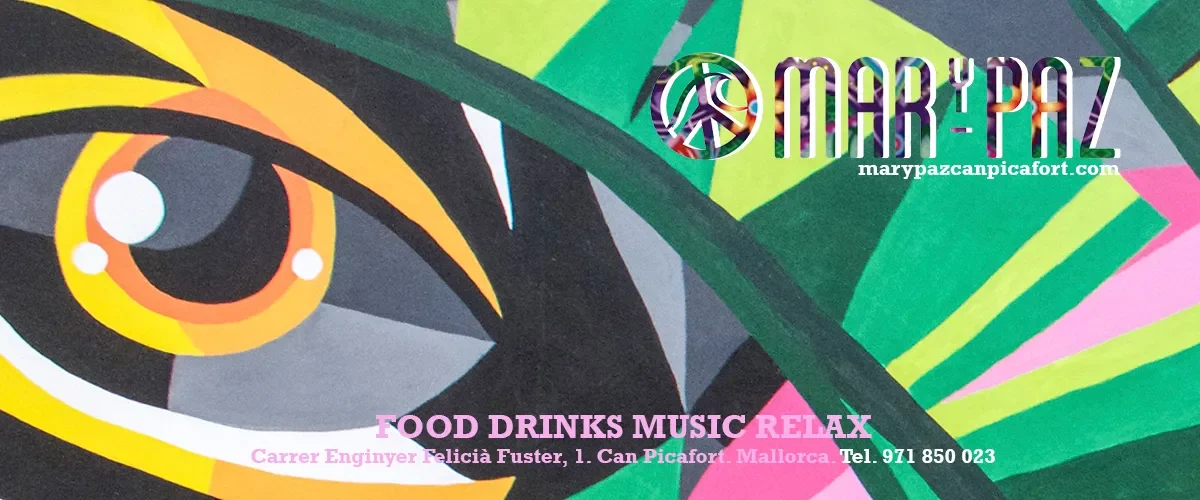Hans-Peter Lindstrøm forma parte de esa hornada de jóvenes productores que asaltaron la escena electrónica mundial en la pasada década con las técnicas de grabación del sonido perfectamente asimiladas y que transitan con una insultante facilidad entre lo orgánico, lo analógico y lo digital. Con un dominio apabullante del manejo de percusiones, guitarras, bajos y teclados, el finlandés, crea ?odiseas bailables? en lugar de canciones. Ahí quedan gemas como I Feel Space o los remixes de altura para gente como Franz Ferdinand, Killers, Roxy Music, Doves, The Horrors o LCD Soundsystem. Además de 2 excelentes álbumes propios (Its A Feedelity Affair y Where You Go I Go Too), ha editado 2 más junto al gran Prins Thomas y otro junto a Christabelle, Real Life Is No Cool. En 2012 se plantó nada menos que con dos álbumes, Six Cups Of Rebel y Smallhans, al que le han seguido Ruddans en 2015 –en colaboración con el legendario Todd Rudgen– y su más reciente It’s Alright Between Us As It Is, de 2017. Entre sus últimos tracks, destacan su sonado Lanzarote, ese pelotazo italo junto a Todd Terje, Games for Girls, Closing Shots o Tensions. Desde Suecia con amor.
http://lindstrom.bandcamp.com/album/on-a-clear-day-i-can-see-you-forever

Raised on country and western music in the outskirts of the Norwegian oil town Stavanger, Hans-Peter Lindstrøm now lives in Oslo where he is making contemporary disco and running his Feedelity label. Claiming that ‘Hans-Peter Lindstrom is closing in on Henrik Ibsen and Ole Gunnar Solskjaer as being Norway’s poster boy of choice» (quoting an article on Piccadilly Records website) is obviously quite an overstatement, but nonetheless his original approach to dance music is currently causing quite a stir.
Hans-Peter never listened to dance music growing up, and the first time he really listened to it, was a few years back figuring out how to make it. He prefers quiet nights in with his family, and Hans Peter never really goes clubbing unless he’s Lindstrom. As for artistic background, he used to play the piano in a gospel choir and the Hammond organ in a Deep Purple tribute band in his early twenties, before getting into Bob Dylan and folk/country music. Around 99? he got all fed up with music, sold his instruments, and moved from Stavanger to study literature at the University of Oslo. As retirement often proves unbearable to music lovers, he soon found himself busking the main street of Oslo with his guitar. One thing led to the other: he bought a sampler, borrowed a few 12?s to study the structure of dance music, and had a go at it.
It’s quite impossible to pinpoint the exact origins of his musical originality, although traces might be found in the aforementioned background. Coming from gospel choirs, country and rock bands without any knowledge of dance music whatsoever, he entered the scene rather freed from any preconceived notions of style and trend parameters. He hung on to the habit of making music by playing melodies on real instruments, and the fact that he plays all the instruments on his recordings – guitars, bass, keyboards, drums and percussion- enables him to make music inspired by whatever his influences are at the moment. Last time we spoke to him he was mostly listening to 60s, 70s and 80s rock and pop, and he reckons that music from that era is much more interesting, both in terms of song writing and production values.
His first success was the jazzy ‘Granada», being championed by the likes of Giles Peterson and François Kevorkian and signed to numerous compilations. Wanting to take charge of his own career, he set up Feedelity Recordings – referring to the contrast between feedback and high fidelity – in 2003, and released ‘the untitled EP» which at first sold the massive amount of 150 copies. The track being included on the Chicken Lips DJ-Kicks compilation did the job though. Then came ‘I Feel Space», the track that put Lindstrom on the map of dance communities all over the world, a 12″ single that sold remarkably 17.000 copies! This single was followed by a string of 12″s that in the end was compiled on the critically acclaimed ‘It’s A Feedelity Affair» album.
Following a consistent flow of highly acclaimed EPs, singles and remixes for names like Franz Ferdinand, Killers, Roxy Music, Doves, Bordoms, The Horrors and LCD Soundsystem, has also released two Lindstrøm & Prins Thomas duo albums on Eskimo Recordings – in 2005 and 2009. The press and record buyers alike loved the Norwegian bearded duos album – often described as downbeat space disco with a singer/songwriter feel – is now regarded as modern classics.
Lindstrøm today enjoys a cult-like status within dance music circles, and although the humble guy himself is happy doing what he loves on an underground scale. He has decided to have control over both his own music and publishing, that is why releases all his music on his own label Feedelity in collaboration with Oslo`s Smalltown Supersound.
2008 saw him debut with his first proper debut album, Where You Go I Go Too, released independently through Feedelity / Smalltown Supersound – to high critical acclaim. And as strange as it may sound, this is actually his debut album as ‘It`s A Feedelity Affair» was a compilation of his 12″ output.
Lindstrøm has collaborated closely with a lot of artists, and one of these is Norwegian-Mauritan Christabelle Sandoo. Lindstrøm & Christabelle released their debut duo album the 18th of Janury 2010 on Feedelity / Smalltown Supersound, named ‘Real Life Is No Cool». The album contains 10 songs with vocals – electronic music melting together with soul and r’n’b.
In early 2012, Lindstrøm released the album ‘Six Cups of Rebel», were his own vocals could be heard for the first time.
On the 5th of November, 2012, Lindstrøm is once again set to release a studio album. ‘Smalhans» will be released on Smalltown Supersound and Feedelity. The album contains six songs which are named after traditional Norwegian dishes. ‘Smalhans» is mixed by fellow producer Todd Terje.
Norwegian space disco duo Lindstrøm & Prins Thomas have come together with French disco legend Cerrone to create a cosmic reworking of his newest single, “The Impact.”
The remix spans over 10 minutes, paying homage to Cerrone’s disco roots through cascading galactic loops and echoing extraterrestrial tones. It follows the recently unveiled Neo-Disco Remix by Mercer, which skillfully infused Cerrone’s revitalized disco sound with the DJ’s own EDM-inspired production.
“The Impact” reflects Cerrone’s concerns regarding climate change, incorporating a speech from the renowned ethnologist Jane Goodall on the impact of humans on the planet and the hope for improvement and healing over time with teamwork and effort.
The track is the first single to be taken from Cerrone’s first studio album since 2016, ‘DNA,’ which is to be released early-2020. Producing ‘DNA’ entirely, Cerrone is clearly marking his return to disco. Speaking about the upcoming album Cerrone says:
“These past five years, I have developed a new form of performance through DJing, playing mostly my own repertoire. This has allowed me to revisit my catalogue and inspired the making of this album, an exploration of my musical DNA through my experience as a DJ.”
Widely considered one of the most influential artists of the original disco-era, Cerrone one of dance music’s earliest pioneers and the most sampled French artist in the history of music. Artists such as Daft Punk, Bob Sinclar (who sold 1 million copies of his Cerrone by Bob Sinclair album) and even Massive Attack cite Cerrone’s work as an influence, making it of little surprise that artists and producers are still queuing up to share his spellbinding creations.

